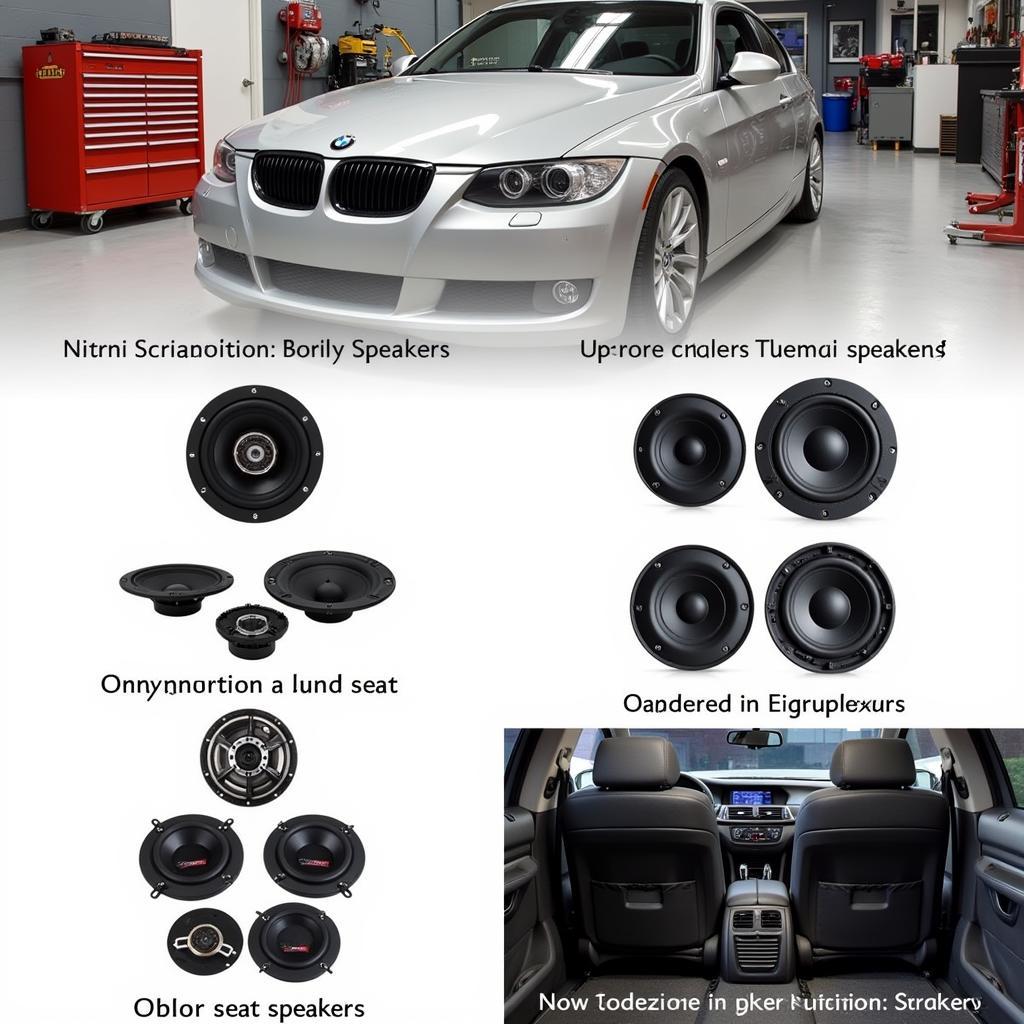The distinctive bmw 335i sound is a topic of much discussion among owners and enthusiasts. From the purr of a healthy engine to the unsettling clunks and whirs of potential problems, understanding your 335i’s auditory cues is crucial for both maintenance and enjoyment. This comprehensive guide will delve into the various sounds your BMW 335i might produce, helping you diagnose potential issues and maintain peak performance.
Understanding the nuances of your BMW 335i’s engine sound can be the key to identifying potential problems early on. Whether it’s a subtle change in the exhaust note or a more pronounced whine, these sounds offer valuable clues about the health of your vehicle. We’ll explore common bmw 335i sound issues, their potential causes, and solutions, empowering you to address them proactively.
Common BMW 335i Sounds and Their Causes
A healthy 335i boasts a refined engine note, a smooth, almost melodic hum that signifies efficient operation. However, deviations from this norm can indicate underlying problems. Let’s break down some of the most frequently reported bmw 335i sound complaints:
-
Whining Noise: A high-pitched whine, particularly noticeable during acceleration, often points to issues with the turbocharger or its associated components, such as the wastegate or diverter valve.
-
Rattling Sounds: Rattles can originate from various sources. Loose heat shields, worn-out pulleys, or problems within the exhaust system are common culprits. A thorough inspection is crucial to pinpoint the exact location and cause of the rattle.
-
Knocking Sounds: A knocking sound from the engine, especially under load, is a serious concern. This could indicate issues with the engine’s internal components, such as connecting rods or bearings, and requires immediate attention.
-
Grinding Noises: Grinding noises, especially when braking, often indicate worn brake pads or rotors. Ignoring this can lead to more extensive and costly brake system damage.
Diagnosing BMW 335i Sound Issues
Diagnosing the source of a particular bmw 335i sound requires a systematic approach. Here’s a recommended process:
-
Identify the Sound: Pay close attention to the type of sound, its frequency, and when it occurs (e.g., during acceleration, braking, idling).
-
Isolate the Location: Try to pinpoint the general area from which the sound seems to emanate (e.g., front, rear, engine compartment).
-
Consult a Professional: While some issues can be easily identified, complex problems require the expertise of a qualified technician. They can utilize advanced diagnostic tools to pinpoint the exact cause.
Preventing BMW 335i Sound Issues
Regular maintenance is crucial for preventing many bmw 335i sound problems. This includes:
-
Regular Oil Changes: Using the correct oil type and adhering to the recommended oil change intervals is essential for engine health and longevity.
-
Fluid Checks: Regularly check and top off all fluids, including coolant, brake fluid, and power steering fluid.
-
Inspections: Routine inspections by a qualified technician can identify potential issues before they escalate into major problems. For example, a timely inspection can identify a worn-out pulley before it causes significant damage.
You can learn more about upgrading your car’s sound system in our article: bmw 335i sound system upgrade.
Why is My BMW 335i Making a Whistling Sound?
A whistling sound from your BMW 335i often indicates a vacuum leak. Vacuum leaks can affect engine performance and fuel efficiency.
Short Answer: A whistling sound typically means a vacuum leak.
Similar to a 2007 bmw 335i sound system, addressing the underlying issue is crucial for optimal performance and a pleasurable driving experience. This is where remote diagnostics and software programming play a crucial role in modern car repair. Issues with the engine control unit (ECU) or other electronic modules can manifest as unusual sounds. Remote diagnostics allow experienced technicians to access your vehicle’s systems remotely, diagnose problems, and even implement software updates or recalibrations to address the issue. This eliminates the need for lengthy and sometimes costly trips to the workshop. Just as you might upgrade your sound system, addressing these issues can significantly enhance your driving experience.
In conclusion, paying attention to your bmw 335i sound is vital for maintaining its performance and longevity. Understanding the different sounds and their potential causes empowers you to address problems proactively. Regular maintenance and consulting with a qualified technician are key to keeping your 335i running smoothly and enjoying its distinctive sound for years to come. We also offer resources on sound dampening for those interested in reducing road noise, like our guide on 2010 bmw 335i sound dampening.
FAQ
-
What are the most common causes of a whining noise in a BMW 335i? Turbocharger issues, such as a failing wastegate or diverter valve, are often the culprits behind a whining sound.
-
What should I do if I hear a knocking sound from my 335i’s engine? A knocking sound is a serious concern and requires immediate attention from a qualified technician.
-
How can I prevent bmw 335i sound problems? Regular maintenance, including oil changes, fluid checks, and inspections, is crucial for preventing sound issues.
If you’re experiencing sound issues with your 2009 BMW 335i, you might find this helpful: 2009 bmw 335i sound system. Similar upgrades are available for the 2007 model, discussed in our article 2007 bmw 335i sound system upgrade. Need help with your BMW 335i sound? Contact us via Whatsapp: +1 (641) 206-8880, Email: CARDIAGTECH[email protected] or visit us at 276 Reock St, City of Orange, NJ 07050, United States. We offer 24/7 customer support.

